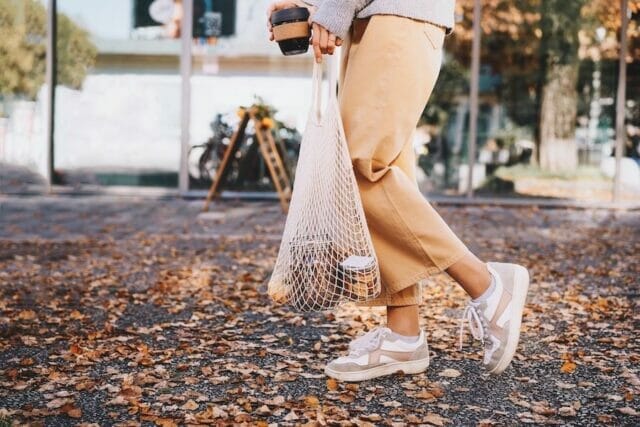
This Article is Sponsored by Our Friends at Big Berkey Water Filters.
Sustainability refers to maintaining the environment and earth’s resources for future generations. It’s being conscious about how our energy, water, and resource usage impact the world.
When it comes to being more sustainable, a great place to start is with our individual impact and our everyday lifestyle decisions. By changing our habits and living sustainably, we can make a difference for the planet, and for our wallets.
Going green and saving money go hand in hand. A reduction in consumption of electricity, water, and natural resources can help you save a lot of money in the long run.
How to Be Eco Friendly: 12 Ways to Get Started
Here are 12 ways to make your home more sustainable in 2025.
1. Cut Single-Use Plastic at the Source
It’s no secret that plastic water bottles are taxing on the planet. Americans use 50 billion plastic water bottles per year, which requires 11 million barrels of oil to make, and the vast majority of these plastic bottles don’t get recycled.
If that wasn’t bad enough, plastic water bottles often contain micro plastics and when left to heat up in the sun or your car, they can contain elevated levels of harmful chemicals.
The good news: it’s incredibly easy to ditch plastic water bottles and go green with a water filter. Having a water filter at home will also save you the time and money you used to spend buying plastic water bottles.

Using water filters at home means you can enjoy pure drinking water right at home, sourced from your tap. We recommend a long term water filter like the Berkey water filter for its superior filtering abilities. It’s also nice that you don’t have to change it very often, making it that much more convenient.
2. Reduce Your Energy Consumption
One big way you can be more sustainable at home is by conserving energy. By changing certain aspects of your home, you can reduce your personal or family’s carbon footprint.
For example, here’s a few ways you can save energy and money at home:
- Consider switching gas appliances for electric appliances
- Choose energy efficient appliances when buying new
- Installing motion sensors and dimmers in the house will help you save energy by avoiding the unnecessary use of lights
- Install energy efficient light bulbs
- Installing solar panels can switch some or all of your energy consumption to sustainable renewable energy
- You can control your thermostat to regulate temperatures during the day and night so your air conditioning and heating run less often
- Unplugging appliances when not in use and turning off lights when you leave the room will also help conserve power and save energy
By simplifying your lifestyle and using less energy, you can lower your energy consumption and, ultimately, your carbon footprint.
Bonus: Offset Your Energy Bill with Renewable Certificates
Renewable energy sources such as solar and wind are much better for the planet compared to coal and fossil fuel based energy sources. Investing in renewable sources can make a big difference in the impact of your home and contribute towards sustainability.

Eco-Stylist is reader supported. When you shop through links on our site, we may earn a commission. Learn more here.
If you can’t install solar panels or select renewable energy from your utilities provider, there is another way you can make an impact. Consider subscribing to a service like Arcadia to make your monthly utilities bill green for as little as $5 a month.
3. Easy Ways to Recycle + Reuse
Recycling and reusing are great ways to reduce your carbon footprint. Recycling involves collecting and processing recyclable materials to be used again. Reusing is using something that has already been used before instead of using something new.
Plastics are a menace to the environment, and recycling them is a great way to help. You can recycle all sorts of things, such as plastic bottles and containers, paper, cardboard, newspapers, aluminum cans, and tin cans, along with metal items, such as pots, pans, and cutlery. Check out our guide to recycling to learn more.
Some products can be used more than once. For example, you can use the same coffee cups many times without throwing them away. Reusing and recycling helps conserve resources by keeping them out of the landfill and extracting raw materials from waste products.
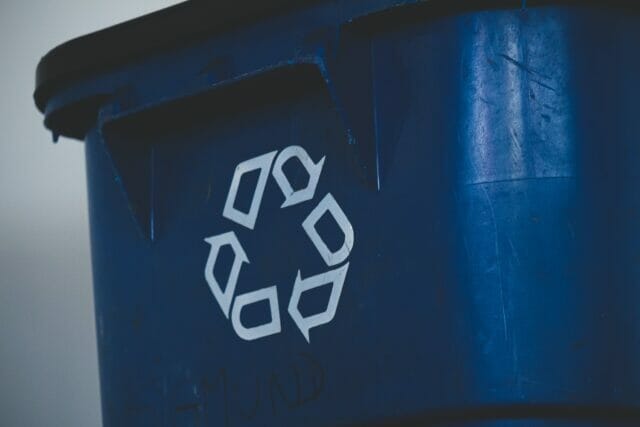
4. Simple Tips to Live a Zero Waste Lifestyle
Adopting Zero Waste living hacks is a great way to make a difference. Here’s a few easy ways for you to get started.
Sustainable Living 101: Get a Reusable Water Bottle
This one probably speaks for itself but worth mentioning nonetheless! Building off of #1 above, getting a reusable water bottle is a way to further ditch single use plastic.
Fill your reusable water bottle up at home (thanks to your water filter) and take it on the go. Consider keeping one in your car so can fill up at rest stops, the gym, school, work, and anywhere else life takes you.
This will help you cut back on single use plastic when you’re not at home and traveling, or out and about. Here’s one we like.
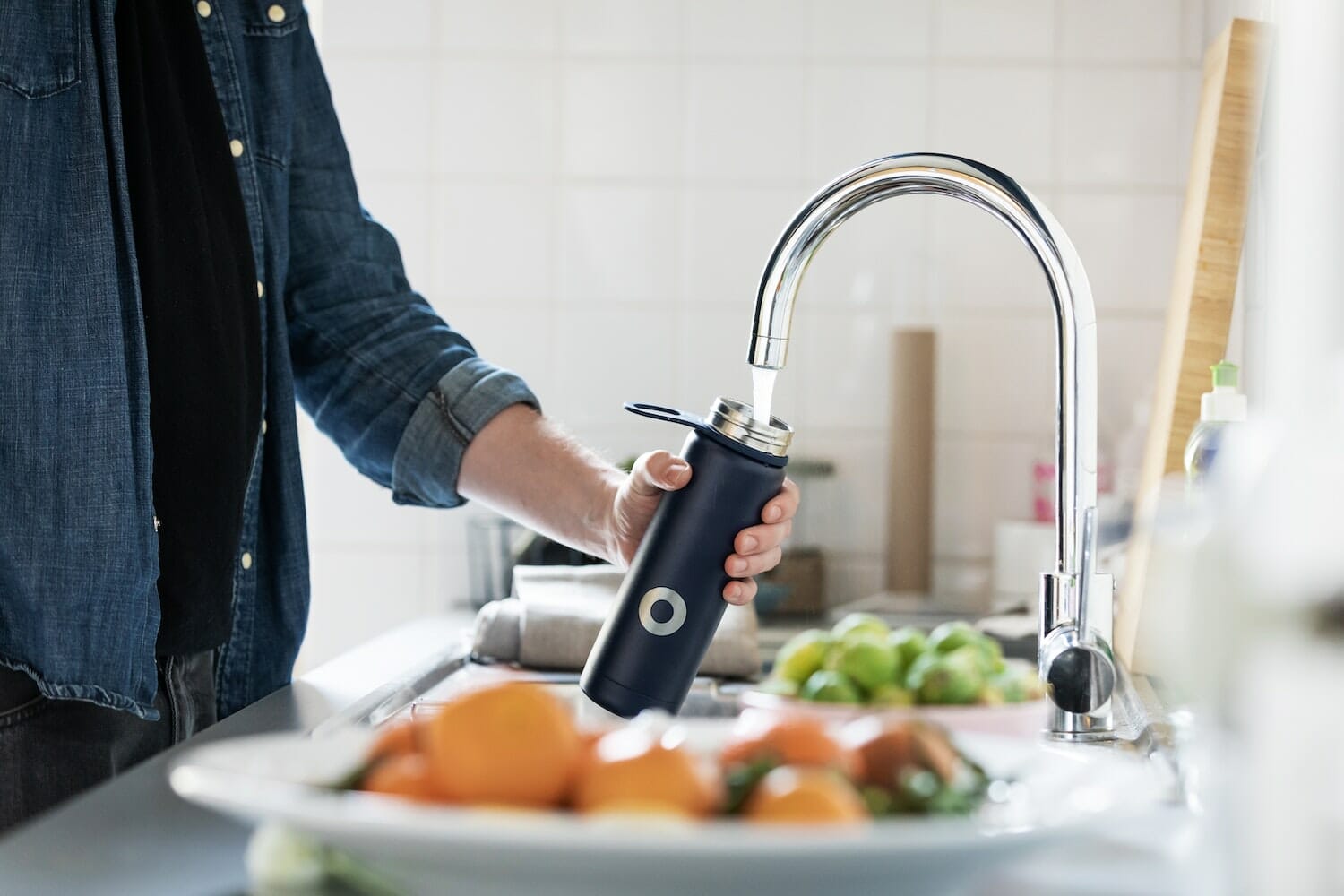
Sustainable Grocery Shopping: Bring Your Own Bags
One way to ditch plastic single use grocery bags is to bring your own grocery bags to the store with you. You may have realized that the resources to make a reusable grocery bag are greater than those to make a single use grocery bag, but one thing changes that: use.
If you actually use your reusable grocery bags the impact completely flips. Usually after about 20 uses the impact is in the green and then it’s a positive impact every time there after. Plus, by ditching plastic bags you’re not contributing to plastic and fossil fuel consumption.
Get a Reusable Coffee Tumbler + Containers for Leftovers
You’ve got the water bottle, now let’s do the same with our coffee and food. Get some nice reusable containers that you’ll use again and again for your food storage and coffee on the go.
These habits can also help you save money by reducing how much coffee and food you buy out, and increasing what you bring from home. Here’s a tumbler we love.
5. Cut Fast Fashion and Support Environmentally Friendly Clothes

Fast fashion is bad for the planet. You can read all about that here.
Luckily you don’t have to support fast fashion brands. Opt instead for shopping your own closet, thrifting, and supporting sustainable fashion brands.
For 100+ great brands that are better for people and the planet, check out our brand guide.
6. Don’t Throw Away Old Clothes and Shoes: Do This Instead
One of the big problems created by fast fashion is that clothes are ending up in landfills in record numbers. But clothes are not trash!
By keeping clothes out of the trash and disposing of them responsibly, you can make a big difference. Check out our guide to getting rid of old clothes and shoes for your most sustainable options.
For donating clean clothing we recommend checking out KNOWN SUPPLY for an easy and impactful solution.
7. Save Trees and Your Bum: Ditch Toilet Paper
Remember the toilet paper shortage during covid-19? You can protect yourself from future shortages and save lots of trees by ditching toilet paper (or at the very least, using WAY less).
And the way to do that: a bidet. Bidet’s use water to clean your bum, which it turns out is much more efficient. The end result is saving trees, using less resources, and a cleaner bum.
You’ll even spend less time in the bathroom. With so many advantages (saving time, money, trees, and your hygiene), what are you waiting for? We like this one from Tushy.
8. Use Public Transportation to Live More Sustainably
Using public transport and choosing more environmentally-friendly modes of transportation can reduce your carbon footprint and save you money. Compared to driving your car, taking public transportation can reduce your CO2 emissions by 45% per use.
Try to opt for public transportation or carpooling when you can. It makes a difference.
9. Reduce Water Usage
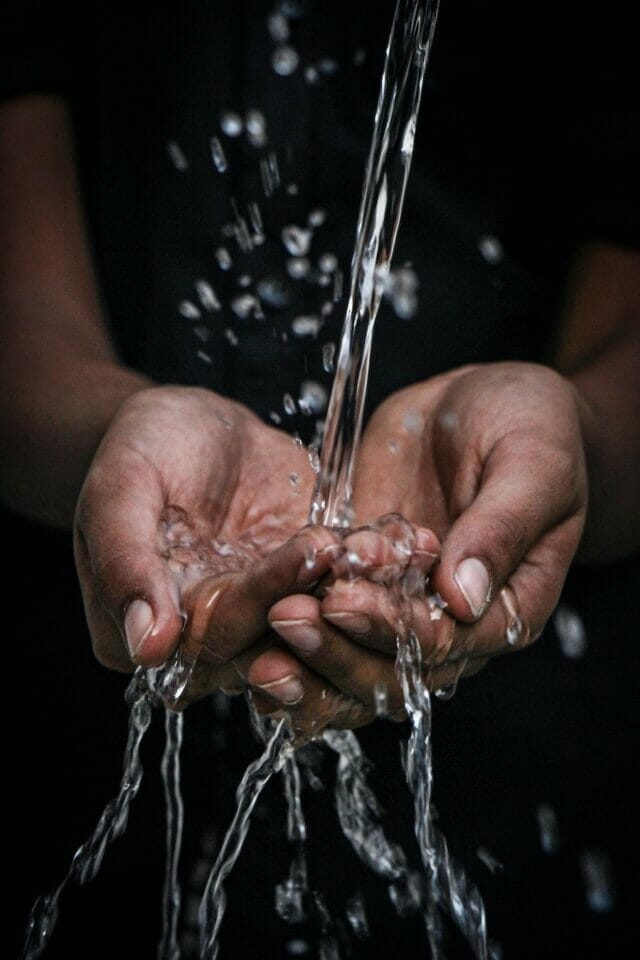
Saving water is an easy step towards sustainable living. Many simple modifications in your home can help you conserve water and reduce waste, from using low-flow shower heads and improving toilet flushing to using drip irrigation for your plants.
Using minimal volumes of water while cleaning and taking faster showers can help you save water too. Consider changing behaviors like not leaving the water running while you are brushing your teeth, doing the dishes, or taking a shower.
Drip irrigation systems are one of the best ways to save water in the garden. Having a rainwater harvesting system can help you reuse and recycle water.
Water shortages affect many people in the world. However, by reducing water usage and conserving it, you can help combat this problem and lower your water bill too.
10. Do Less Laundry
Did you know that ⅔ of the environmental impact from clothing happens post-purchase? Most of this comes from doing laundry. Limiting your laundry loads can save you water and money!
According to the EPA, you can reduce your impact by 90% by simply choosing to wash your clothes with cold water rather than hot, and doing so can save you over $40 a year! A couple extra tips to save water and energy include skipping the extra rinse option and hanging your clothes to dry rather than using the dryer.
Another way to limit the amount of laundry loads you do is to rewear your clothes. For example, jeans can be worn many times before they need to be washed.
11. Cut Food Waste, Start a Compost and Garden
A lot of food ends up in the trash, where it’s hard to decompose due to plastic bags and landfill conditions. One way to cut food waste is to start composting and (optional) start a garden!
If you don’t want to start your own garden, you can still make a positive impact by composting! See if you can donate your compost to a friend, a local community garden, or check your local area for a compost pick up service (similar to your current trash or recycling service). CompostNow provides a bin and weekly pickup for about $30/month.
Growing a garden is a good way to help you reduce your carbon footprint and can help you minimize the amount of money spent on shopping. You can experiment with different types of plants and vegetables to see which ones grow best in your area.
Growing your vegetables gives you access to fresher and healthier food. You can also use your compost in your garden to help control weeds. Using a compost tumbler makes composting easier. You can also make use of rainwater for irrigation purposes to reduce your water waste.
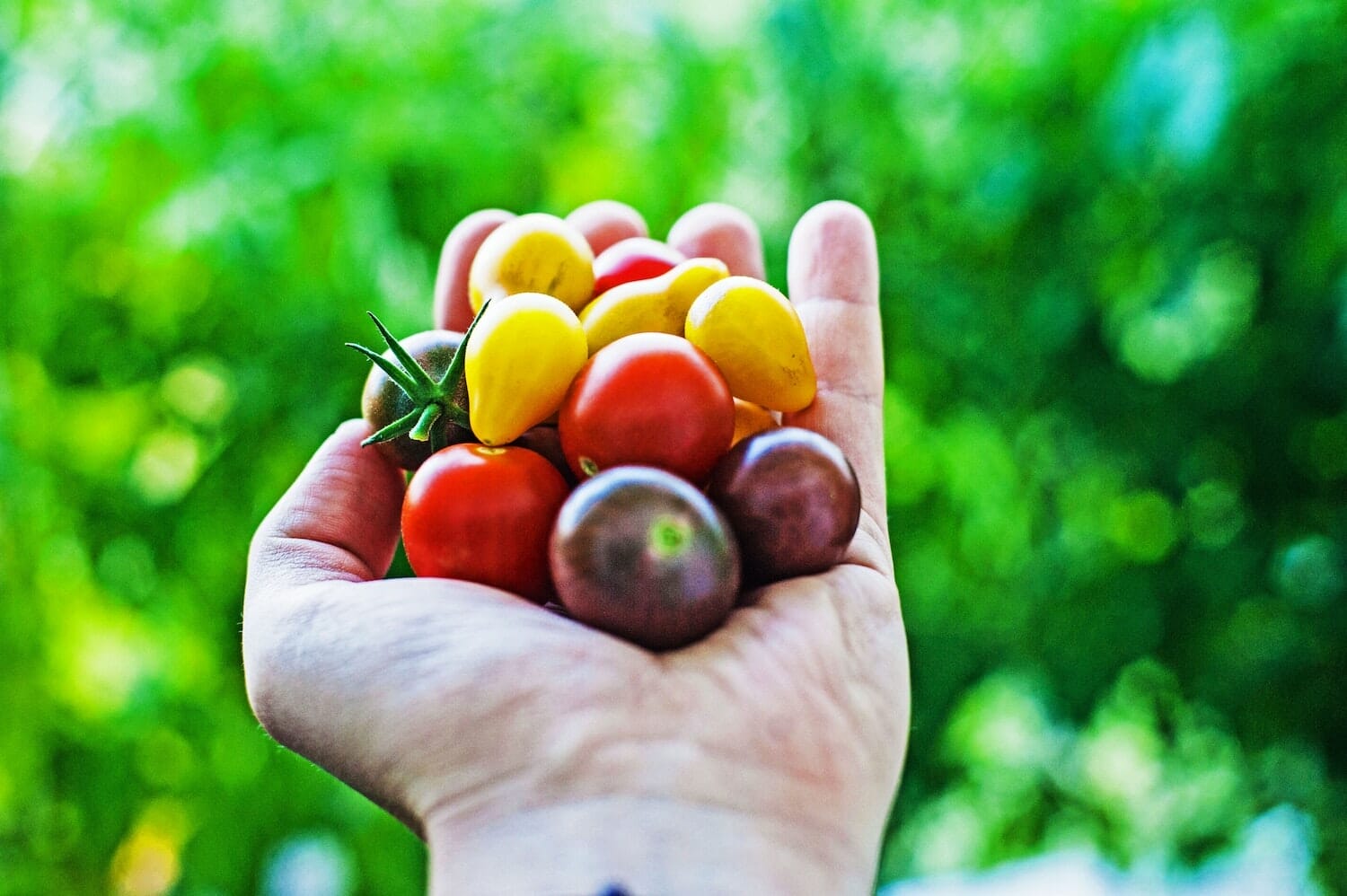
Apart from that, growing a garden is a great way to involve the whole family in an activity that can be fun for everyone. Children will learn about plant growth and cultivation, and adults can spend quality time with their loved ones.
No space for a garden? You can grow avocados, tomatoes, lemons, peppers, and plenty more tasty foods indoors. If you don’t have the extra space for potted plants, you could start a mini hydroponics garden. This is basically growing plants with water and nutrients, minus the soil. You can easily find instructions on how to start your no-soil garden and starter kits typically range from $50-300.
Additionally, growing indoor plants can improve air quality in your home, while planting trees in your yard can increase your green space and reduce your carbon footprint. Trees can also provide fruit for your household, while reducing pollution and increasing sustainability.
12. Sharpen Your Sewing Skills
Knowing how to sew is more than just a crafty talent—it’s a sustainable superpower.
Mending small tears, replacing buttons, or even tailoring pieces to better fit your style helps extend the life of your wardrobe. Repairing instead of replacing reduces textile waste, curbs your consumption, and saves you money in the long run.
In fact, wearing your clothes for just nine extra months can reduce your carbon, water, and waste footprints by 20–30%, according to WRAP.
Don’t stop at fixes—get creative. Upcycle old t-shirts into cleaning rags or turn worn-out jeans into tote bags. Every stitch helps reduce demand for new resources.
Don’t know how to sew? Don’t worry, your local tailor can also help you repair your damaged clothes.
Looking for More Ways to be Sustainable?
Are you already a sustainable living pro, looking for more ways to improve your impact? We put together a few guides covering a range of ways to make a positive impact:
- Switch to a green bank
- Make your investment portfolio fossil fuel free
- Get a microfiber filter for your laundry
- Check out our zero waste laundry tips
What is Sustainable Living?
Sustainable living is a lifestyle all about adjusting aspects of your day to day life to reduce your environmental impact. It’s been gaining popularity recently as people increasingly recognize the impact humans have on the planet. From climate change to deforestation, biodiversity loss, resource depletion, overflowing landfills, oil spills, and plastic in the ocean it is undeniable that we are changing the planet we are lucky to call home.
While it might seem that individual impact won’t change everything, it’s something we can all do to take personal responsibility and do our part. And if we all do our part, it really could change everything.
How Can You Be 100% Sustainable?
Incremental improvement is a great goal to have but living a 100% sustainable lifestyle is not realistic. There will always be more we can do and ways we can improve.
What we can do is take action on one thing at a time. Make a change that’s easy and realistic for you to do today. Then, when you’re ready, make another change.

A Note on Eco-Perfectionism
Trying hard to life a 100% sustainable life is also known as eco-perfectionism. Eco-perfectionism refers to trying to be perfect in every aspect of our lives to live as sustainable as possible. While a noble goal, this can lead to burn out, mental health challenges, and be counter productive in the end, especially if you give up.
Remember, we don’t need a few people living perfectly sustainable lives. We need millions of people living more sustainably, and doing what they can.
You Can Live a More Sustainable Lifestyle!
It is possible to reduce your carbon footprint and go green without spending much money. In fact, many of these solutions can lead to considerable money savings long term, even if they require some upfront investment in the short term (think solar panels).
By making some easy lifestyle changes, you can contribute towards environmental sustainability. Going green helps protect our planet and ensure a better quality of life. Sustainability also helps us minimize our contributions toward global warming.
The above tips will guide you on ways to be sustainable at home, reducing and reusing household products, conserving electricity, or growing your food. The more you practice sustainability at home, the better it is for the environment.
Make Your Impact Go Further
Did you find this guide helpful? Please share it with a friend to make your impact go even further.
We hope you found these starter tips helpful! Got questions or some tips of your own? Add them in the comments.

We’re a team of sustainable fashion experts, change makers, writers, and editors dedicated to changing the world, one individual action at a time.











2 thoughts on “12 Easy Ways to Be Sustainable in 2025”
Living sustainably means adopting eco-friendly practices and technologies that reduce our environmental impact and promote renewable energy sources like solar power. In 2023, solar energy has emerged as a key pillar of sustainability, offering a powerful solution to reduce our carbon footprint and combat climate change. Embracing solar power as a sustainable energy source definitely holds numerous benefits!
I appreciate your valuable advice on this topic! It’s essential that we adopt measures to minimize the environmental footprint of our swimming pools too. In complement to the recommendations you’ve offered, I’d like to emphasize the potential benefits of opting for saltwater pools. These pools utilize a natural chlorine generation process, which diminishes the requirement for conventional pool chemicals and promotes a more sustainable maintenance approach. I encourage you to explore the possibility of saltwater pools as a greener alternative for pool ownership.